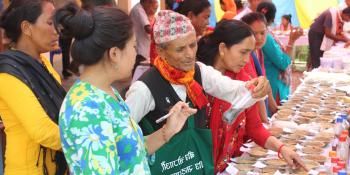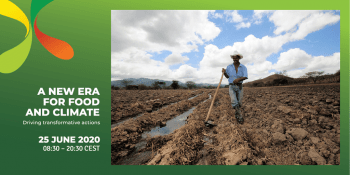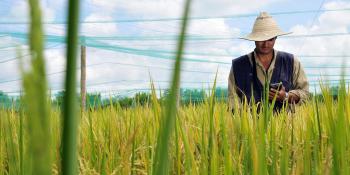Developing regional scenarios for climate change and food security in 2030
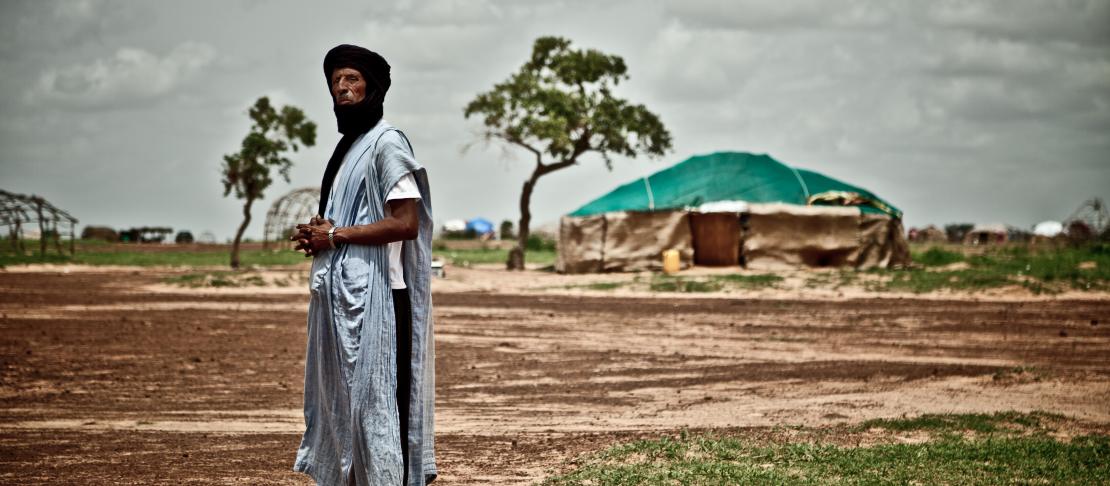
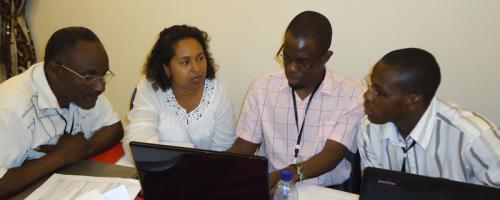
Participants at an East African Scenarios workshop discuss how climate change and food security might unfold in the region to 2030.
What could East Africa, West Africa, and the Indo-Gangetic Plains look like in 2030? Could there be high levels of regional integration where governments work together to boost economic development and ensure food security? Or will the status quo remain, where environmental degradation and poverty stays high and there is little regional concern about the state of agriculture and food security?
Stimulating deliberations and debates on these questions took place during Scenarios Workshops held in Nairobi, Dar es Salaam, Dakar, and New Delhi led by the Climate Change, Agriculture and Food Security program (CCAFS). Researchers from CCAFS are working with national agriculture research institutes, non-governmental organizations, farmers’ associations, international development organizations, meteorological centers, and government officials to discuss plausible futures and contemplate what these regions would be like by 2030. This is the first attempt to develop scenarios linking climate, agriculture, and food security at a regional level through a multi-stakeholder dialogue. Developing plausible agriculture and development pathways by 2030 under a changing climate at local and regional levels, will help to systematically explore policy and technical options for improving agriculture and food security in the face of environmental change. These analyses will also provide a framework to raise awareness of key regional drivers and concerns; and as a policy approach, they will help decision makers consider the viability of potential adaptation options, and identify the trade‐offs and synergies of different options for climate change, agriculture and food security goals.
East Africa
In East Africa participants produced four prototype scenarios to illustrate how different regional social, economic and political scenarios might play out for climate, agriculture and food security. The scenarios were evaluated against 13 different indicators, including food affordability, soil and water quality, financial wealth and health. The first East African scenario, characterized by regional integration and proactive policies, showed positive outcomes, for example improved food security. Meanwhile, at the other extreme, a scenario based on the current status quo and reactive policy could lead to an increase in food prices and continued environmental degradation. In East Africa, the scenarios are heavily influenced by two drivers: the degree of regional integration and the stance of governments on environmental issues and food security. The future shape of these drivers, however, remains highly uncertain.
For a step by step description of the scenario development process, please download the poster “4 Steps to Building East African Scenarios” (PDF). We will be presenting this poster during Agriculture and Rural Development Day at COP16. A full workshop report (PDF) is available for more detailed information on the various discussions during the first East Africa workshop and the initial process of building scenarios.
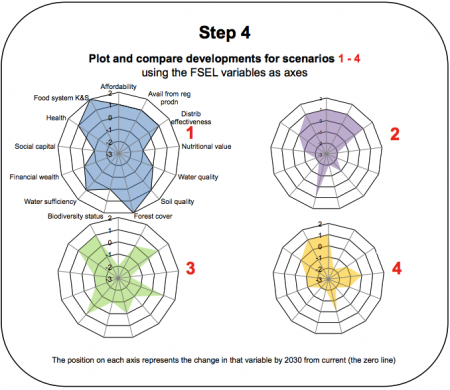 Scenarios for climate change, agriculture and food security in Easts Africa, as visualized by workshop participants. For the full step-by-step scenario development process download the poster “4 Steps to Building East African Scenarios” (PDF)
Scenarios for climate change, agriculture and food security in Easts Africa, as visualized by workshop participants. For the full step-by-step scenario development process download the poster “4 Steps to Building East African Scenarios” (PDF)
Next steps
Additional workshops have taken place in Dakar to develop West African Scenarios, and in New Delhi to develop scenarios for the Indo-Gangetic plains. The workshop report for West Africa is now available and the report for IGP will be available shortly. Watch this space for scenarios in West Africa and IGP that will soon emerging.
As work continues in all three regions, prototype scenarios will be further refined, and will eventually inform future climate models being developed by CCAFS scientists. The process of building these scenarios is leading to the development of new science-policy regional “teams” that are organized around a shared vision, common understanding and trust. Strong links between different actors in the region is essential for any future action on climate change. The Scenarios work is led by Andrew Ainslie and John Ingram from the Environmental Change Institute, Oxford University.
Downloads:
Atelier sur le Changement Climatique, l'Agriculture et la Sécurité Alimentaire en Afrique de l'Ouest | |
Workshop on Climate Change Agriculture and Food Security in East Africa |
This article was written by Moushumi Chaudhury, CCAFS science officer based at the World Agroforestry Centre, Nairobi.

